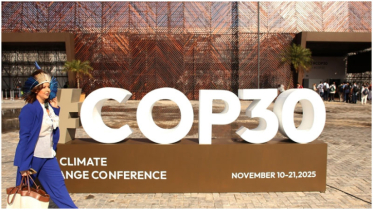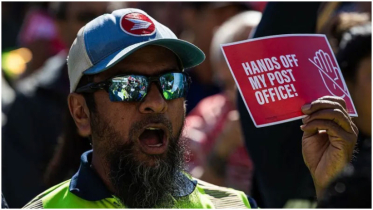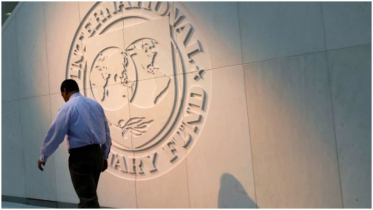EU, Africa leaders eye trade boost as Ukraine tensions loom

European and African leaders are gathering in Luanda, Angola, on Monday for a two-day summit focused on boosting economic and security cooperation — though the ongoing crisis in Ukraine is expected to dominate discussions.
France’s Emmanuel Macron, Germany’s Friedrich Merz, and Kenya’s William Ruto are among the leaders attending, as the European Union seeks to strengthen ties with African partners amid a growing rift with the United States over Washington’s latest proposal to end the war in Ukraine. The initial draft plan by U.S. President Donald Trump was viewed in Europe as overly favorable to Moscow.
Following U.S.–Ukrainian talks on revising the proposal in Geneva on Sunday, EU heads of state are set to hold a special meeting on the sidelines of the Luanda summit. “There is still a lot of work to be done on the 28-point plan,” Finnish President Alexander Stubb said.
A Shifting Global Landscape
The summit — the seventh of its kind — follows a G20 meeting in South Africa marked by a U.S. boycott, highlighting deep geopolitical divides. It also marks 25 years of EU–African Union cooperation at a moment when Europe’s long-standing influence on the continent is under pressure.
Africa has become a key diplomatic arena as China, the U.S., Russia, and Gulf nations ramp up economic and political outreach. While the EU remains Africa’s largest trade and investment partner — with goods and services trade reaching €467 billion in 2023 — its position has weakened amid frustration over colonial legacies and competition from emerging players.
Analysts say the EU must offer stronger, more concrete commitments on infrastructure, energy, and industrial development if it hopes to remain Africa’s partner of choice. “Africa is looking not for new declarations but for credible, implementable commitments,” said AU spokesman Nuur Mohamud Sheekh.
Minerals, Migration, and Europe’s Credibility
Talks in Luanda will cover trade, migration, and security cooperation. But securing access to critical minerals for Europe’s green transition is expected to top the agenda, as the EU seeks to reduce dependence on China for rare earths essential to modern technology.
Brussels is also promoting its Global Gateway infrastructure strategy, meant to serve as an alternative to China’s Belt and Road Initiative. A flagship project — the Lobito corridor, a railway connecting mineral-rich regions of the Democratic Republic of Congo and Zambia to Angola’s Atlantic coast — will be prominently featured. The initiative, co-funded with the United States, has drawn both support and criticism, with some analysts warning it mirrors past extractive models and has yet to show tangible benefits for local communities.
“Europe’s credibility now depends on delivering real economic value for Africa, not just high-profile announcements,” said Ikemesit Effiong of Nigeria’s SBM Intelligence.
.png)




